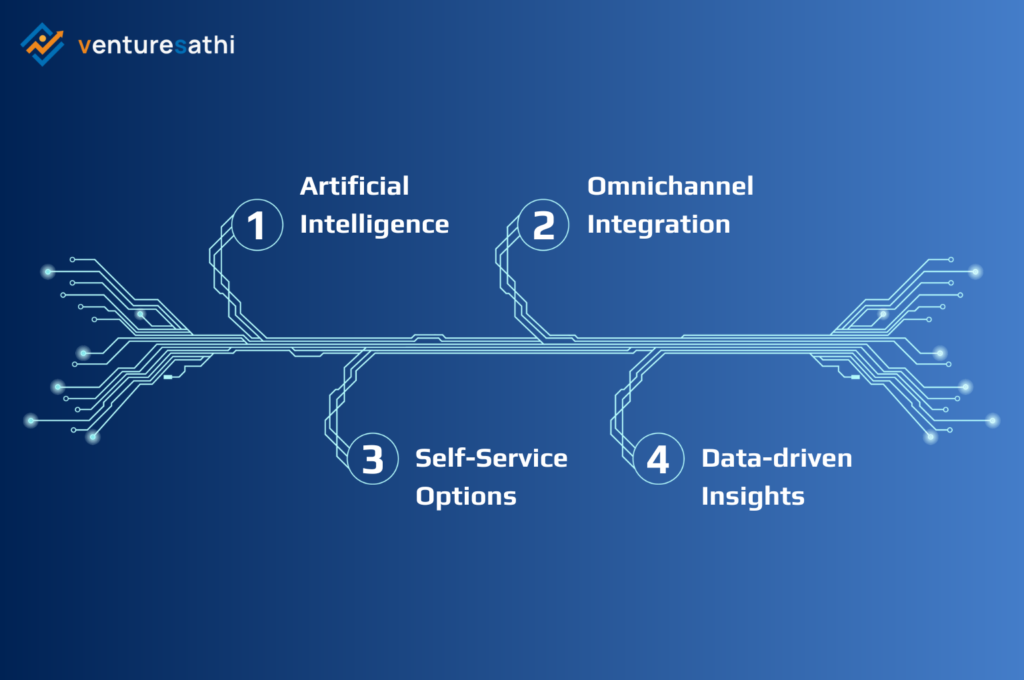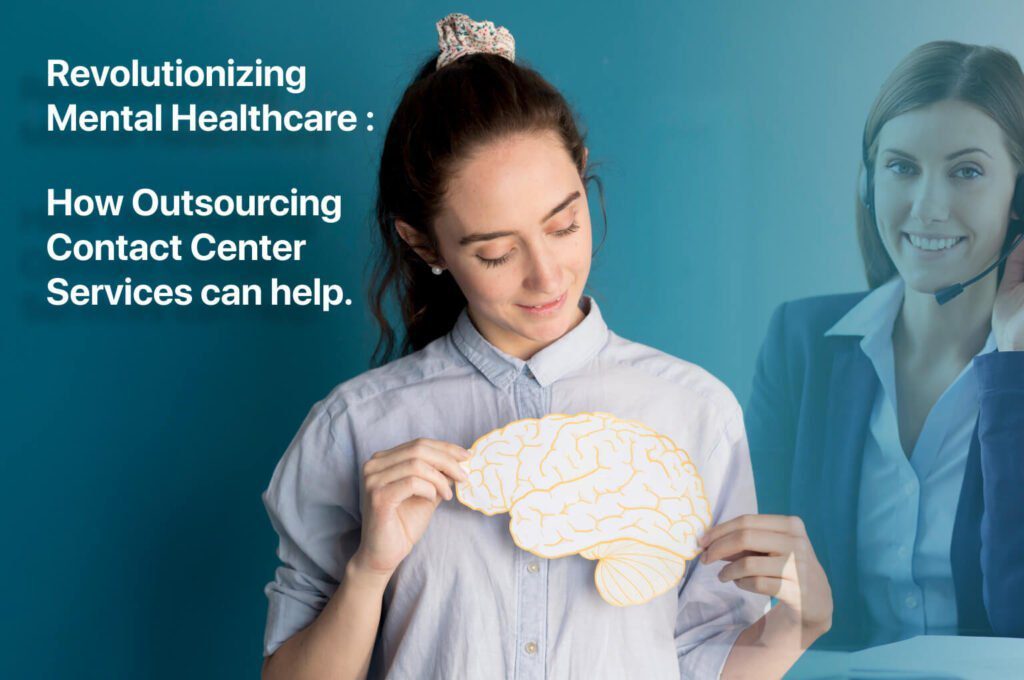Did you know that the CRM software market size was valued at USD 65.59 billion in 2023? And it’s not just thriving, but also one of the fastest-growing industries, anticipated to reach USD 281.21 billion by 2028 at a compound annual growth rate (CAGR) of 14.5%. What’s propelling this growth? It’s the insatiable consumer desire for improved customer service, automated engagement, and increasingly refined customer experiences.
What is CRM?
CRM, or Customer Relationship Management, is a strategic software tool that revolutionizes how businesses manage customer relationships. It collects and organizes customer data to optimize sales, marketing, and customer service processes. Bryan Philips, Head of Marketing at In Motion Marketing, defines CRM as a set of tools, technology, and techniques that enable sales and marketing professionals to better understand and engage with customers, leading to a more tailored and effective approach.
CRM software actively engages with customers, tracks their actions, and guides them through the sales funnel. It analyzes customer behavior, predicts sales trends, and automates marketing and sales processes. The effectiveness of CRM depends on selecting the right platform for your industry and customer base.
Importance of effective CRM for businesses
Effective CRM is crucial for businesses, acting as the central nervous system that facilitates seamless communication and interaction with customers. More than just software, CRM organizes customer data and streamlines customer relations. Implementing a robust CRM platform revolutionizes customer service, sales strategies, and overall operations.
At its core, CRM optimizes data management to enhance the customer experience. It ensures all interactions, from inquiries to follow-ups, are efficiently managed, boosting customer satisfaction, and forming the basis for effective sales and marketing strategies. Effective CRM leverages information to transform customer interactions, drive satisfaction, and support sustained success.
Benefits of CRM Software
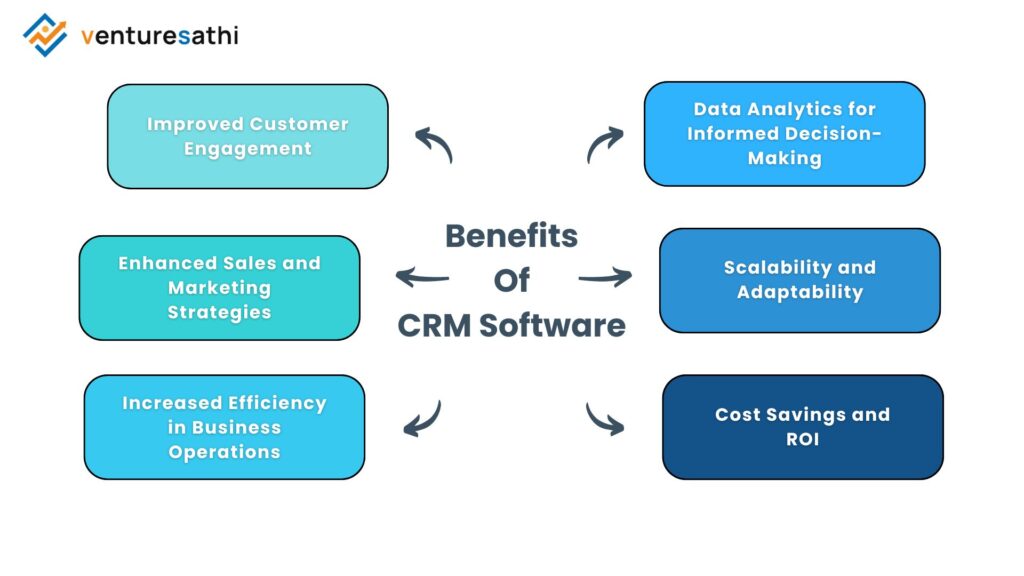
1. Improved Customer Engagement
CRM platforms collect and store customer data, enabling personalized interactions. They automate follow-ups, such as post-purchase surveys or renewal reminders, ensuring no interactions are missed.
By analyzing CRM data, businesses understand customer needs and preferences, allowing them to address concerns proactively and build stronger relationships.
2. Enhanced Sales and Marketing Strategies
CRM platforms track leads and opportunities, ensuring no sales are lost and enabling effective sales strategies, crucial in industries like real estate. They allow customer segmentation by demographics, behavior, and purchase history for targeted marketing campaigns.
Additionally, CRM integration with marketing automation tools creates a unified system, streamlining sales and marketing collaboration and aligning efforts with sales goals.
3. Increased Efficiency in Business Operations
CRM software automates routine tasks like data entry, appointment scheduling, and document generation, saving time and reducing errors. It also includes time-saving features such as email templates, calendar integrations, and task management tools, enabling employees to work efficiently and stay organized.
Additionally, CRM data and reporting features offer insights into resource allocation and workforce productivity, allowing businesses to allocate resources effectively based on activities that yield the best results.
4. Data Analytics for Informed Decision-Making
CRM platforms store customer data, providing insights into behavior, preferences, and trends. They offer customizable reporting tools and dashboards to track KPIs and measure strategy success, refining processes and facilitating informed decisions.
Consistently using CRM data for decision-making helps businesses achieve growth and stay competitive, particularly crucial in rapidly evolving industries like software development, where data-driven decisions are essential for success.
5. Scalability and Adaptability
CRM solutions are designed to accommodate business growth and evolving needs. They can scale to handle larger customer bases, increased data volume, and additional users, crucial for startups and fast-growing companies.
A flexible CRM system can adapt to changing market demands, such as shifts in business focus or expansion into new product categories. Integration capabilities with other business tools ensure seamless workflows, enhancing efficiency across accounting, inventory management, and customer support systems.
6. Cost Savings and ROI
CRM software reduces manual errors and operational costs by automating tasks like invoice generation, improving efficiency, and reducing the risk of errors. It also enhances sales and marketing efficiency through efficient lead tracking and targeted campaigns, increasing ROI. Businesses can calculate ROI from CRM implementation by tracking cost savings and revenue increases, providing a clear financial picture of CRM benefits.
Streamlined Customer Data Management
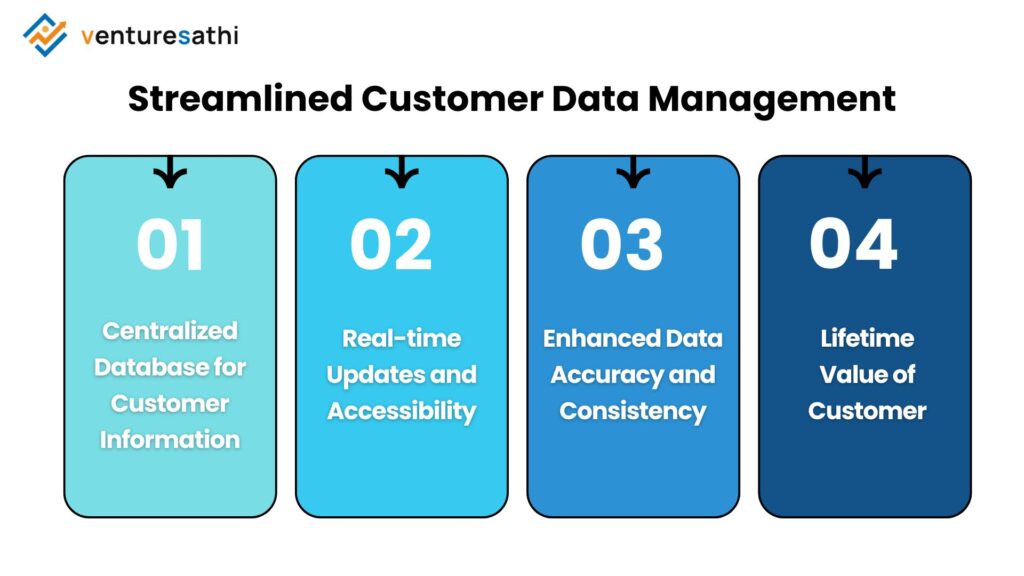
1. Centralized Database for Customer Information
One of the most fundamental features of CRM software is the creation of a centralized database for customer information. This serves as the nucleus of your CRM platform, housing all client data. This not only simplifies data management but also facilitates the access of customer information from a single, unified source.
2. Real-time Updates and Accessibility
CRM platforms enable real-time updates, ensuring that the entire organization has access to the most current customer information. This is particularly valuable in dynamic industries where timely decisions and customer interactions are critical. With real-time updates, businesses can provide prompt and accurate responses to customer queries and needs.
3. Enhanced Data Accuracy and Consistency
No longer will you need to worry about data inconsistencies or errors that can lead to miscommunication or missed opportunities. CRM software excels in maintaining data accuracy and consistency, ensuring that your team always has access to the most accurate and up-to-date customer information.
4. Lifetime Value of Customer:
In CRM, understanding the customer’s lifetime value is crucial. It represents the total worth of a customer over their relationship with a business. CRM software helps track and analyze this value, enabling businesses to segment customers based on revenue contribution and offer personalized services to enhance loyalty and satisfaction, ultimately increasing profitability and sustainability.
Venturesathi’s CRM systems ensure real-time updates, enhanced accuracy, and lifetime value tracking, providing a seamless experience for your team. Take your customer data management to new heights with our tailored CRM solutions, allowing you to focus on delivering exceptional customer experiences.
CRM Success stories
Businesses implement different CRM strategies aligned with their missions and values. They aim to deliver a superior customer experience across various industries. Here are the case studies showcasing how these diverse companies leverage CRM. They enhance their customer relationships and drive business success.
1. Coca-Cola CRM
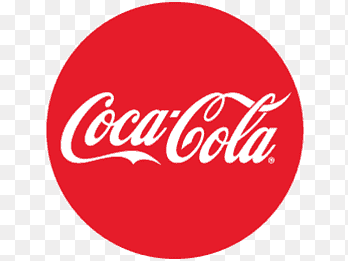
Company Overview: Coca-Cola, established over a century ago, stands as a global leader in the beverage industry, operating in over 200 countries. It boasts a diverse portfolio, offering over 200 product lines that cater to a wide array of consumer preferences.
Approach: Coca-Cola’s CRM approach is deeply rooted in understanding and catering to diverse customer segments:
- Segmentation Strategies: The company employs various segmentation strategies based on age, income, family size, gender, and geographical variations. Tailored packaging and product variations address the unique needs of different demographic segments.
- Listening and Customization: Coca-Cola emphasizes attentive listening and patience to grasp their customers’ needs, customizing their offerings accordingly. Innovative technologies, like the Freestyle vending machine, collect customer data to create unique beverage combinations.
- Surveys and Communication: Using email marketing software, Coca-Cola conducts surveys, gathers insights, and creates buyer personas to refine its marketing strategies. Multi-layered communication methods ensure a seamless flow of feedback, nurturing a quality service experience.
- Enhanced Loyalty Programs: The brand introduces loyalty programs through unique PIN offers on bottles. This provides incentives to customers, enhancing loyalty and engagement.
Results:
- Enhanced Customer Satisfaction: The CRM initiatives have significantly enhanced customer satisfaction. They align products and marketing efforts with diverse customer needs.
- Operational Efficiency: CRM tools like SAP and SalesForce have revolutionized data collection, customer communication, and streamlined processes. The implementation of DSD (Direct Store Delivery) has reduced delivery costs and improved the satisfaction of local bottlers and stores.
- Strategic Use of CRM Tools: The company effectively utilizes SAP and SalesForce. They integrate innovative features like mobile applications to bolster relationships, streamline operations, and drive profitability.
2. Zara CRM

Company Overview: Established in 1975, Zara is a Spanish multinational retail clothing chain, specializing in clothing accessories, beauty, shoes, and lifestyle products.
Approach:
- Customer-Centric Mission: Zara’s mission revolves around meeting customer needs promptly, placing high value on customer satisfaction above all company objectives.
- Transparency and Incentives: The CRM strategy emphasizes transparency in dealings and actively deploys incentive programs to delight customers, fostering loyalty and satisfaction.
- Personalization and Social Presence: The approach initiates from a user-centric website, offering a simple yet highly personalized interface. Zara actively engages on social media platforms, contributing to social issues that resonate with their clientele.
- Innovative Integration: Zara integrates manufacturing, distribution, and sales. This allows them to offer the latest fashions at affordable prices, aligning with their mission and effectively cutting costs.
Results:
- Enhanced Customer Engagement: Zara’s CRM approach has significantly elevated customer engagement through transparent dealings, incentive programs, and a user-friendly online interface.
- Community Connection: The brand’s active involvement in social issues via social media has not only established a strong community connection but also reinforced its customer-centric image.
- Operational Efficiency: Integrating production and sales, Zara successfully maintains a balance between the latest fashion trends and cost-effective strategies. This results in efficient operations and competitive pricing.
3. Unilever CRM

Company Overview: Unilever, a British conglomerate, reigns as a global powerhouse in consumer goods, primarily known for its extensive line of soaps. With an impressive portfolio comprising over 400 brands spanning 190 countries, Unilever’s commitment to quality, customer service, and innovation has solidified its position as a leader in the consumer goods industry.
Approach:
- Customer-Centric Mission: Unilever’s mission focuses on enhancing people’s well-being and enriching their lives by meeting everyday needs for nutrition, hygiene, and personal care, aligning with its objective to make people feel good, look good, and get more out of life.
- Digital Transformation: The CRM strategy revolves around digitizing various aspects of the business, leveraging data, and enhancing digital capabilities across their operations.
- Value-Based Procurement: Unilever emphasizes supporting suppliers and distributors, empowering them with tools to foster better relationships. This strategy focuses on upfront value, and building stronger connections with partners.
- Salesforce Integration: Unilever employs Salesforce as a vital component of its CRM strategy, utilizing the platform to bolster its business community and foster robust relationships with partners and suppliers.
Results:
- Enhanced Customer Experience: Unilever’s CRM initiatives align with its mission, resulting in an enhanced customer experience through tailored marketing campaigns, quality products, and an enriched brand positioning.
- Digital Innovation: By embracing digital transformation, Unilever has optimized its business operations, leveraging data and enhancing its digital capabilities, leading to more efficient and effective processes.
- Stronger Partnerships: The emphasis on value-based procurement and the utilization of Salesforce has strengthened Unilever’s relationships with partners and suppliers, creating a more collaborative and supportive business community.
4. BMW CRM
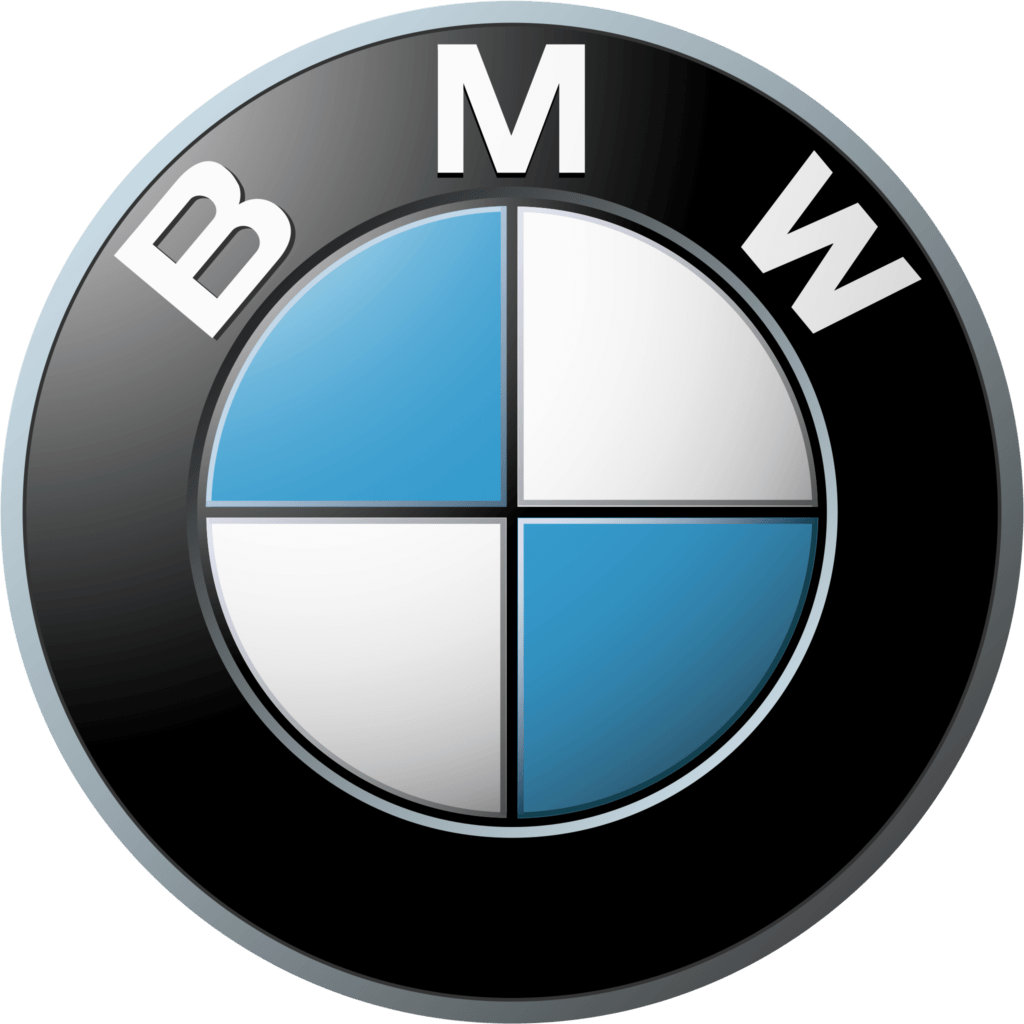
Company Overview: BMW, Bayerische Motoren Werke AG, is Germany’s leading automobile brand, known for luxury cars and as the fourteenth largest producer of motor vehicles.
Approach:
- Customer-Focused Mission: BMW’s mission aims to be the leading provider of premium products and services for individual mobility, ensuring a fine balance between driving pleasure and sustainable mobility.
- Supplier-Centric Strategy: The CRM strategy emphasizes fair treatment for both suppliers and end-users, placing great importance on their satisfaction and forming the core of BMW’s customer relationship approach.
- Quality and Reliability: BMW’s CRM approach is centered on producing premium cars known for their reliability and highest quality, aiming to attract new customers while retaining existing ones.
Results:
- Enhanced Customer Loyalty: BMW’s commitment to premium products and a customer-focused approach has significantly enhanced customer loyalty, attracting customers based on the reliability and quality of their vehicles.
- Market Positioning: The emphasis on producing premium cars has not only attracted new customers but has also retained a loyal customer base, positioning BMW as a leading provider of luxury and quality vehicles in the automotive industry.
- Reputation for Quality: The strategy has earned BMW a reputation for offering the highest quality and reliability in their vehicles, attracting customers seeking top-tier automotive experiences.
5. Tesco CRM

Company Overview: Tesco PLC, one of the world’s leading grocery and merchandise retailers, operates in over 11 countries and diversifies into various industries like banking and technology accessories.
Approach:
- Customer-Centric Mission: Tesco’s mission statement “What we make matters better, together” epitomizes its dedication to serving customers across diverse cultures and backgrounds, emphasizing a collective and inclusive approach.
- Pioneering CRM Adoption: Tesco emerged as one of the first multinational brands to adopt CRM software, introducing the RightNow CRM in 2009, later acquired by Oracle. The company’s success has been deeply rooted in a culture centered on customer satisfaction.
- Omnichannel Customer Support: Tesco primarily utilized CRM in their call centers to support their electronics division. They implemented an omnichannel communication strategy, effectively managing customer interactions across multiple channels such as phone, chat, and email.
Results:
- Enhanced Customer Engagement: Tesco’s CRM adoption facilitated an omnipresent customer support system, allowing the company to cater to customer needs seamlessly across various communication channels.
- Customer Satisfaction: The CRM strategy resulted in winning customer hearts by providing consistent and responsive service across diverse channels. This significantly contributed to the brand’s reputation for customer-centric excellence.
- Efficient Operations: The omnichannel strategy and call center support streamlined customer interactions, improving operational efficiency and ensuring a seamless and responsive customer experience.
Empowering Success Through CRM Solution
CRM Management Software revolutionizes how businesses handle customer relations and operations, offering streamlined data management and enhanced engagement. Implementing CRM optimizes customer relationships, streamlines operations, and drives sustainable growth, making it essential for businesses aiming for success. It fosters better customer care, productivity, and collaboration, unlocking growth potential and building a foundation for long-term prosperity. Ready to transform your business with CRM? Contact us today for optimized relations and sustained growth.
Ready to transform your business with CRM? Contact Venturesathi today and embark on a journey towards optimized customer relations, operational efficiency, and sustained growth. Experience the future of customer relationship management with Venturesathi’s expert guidance and tailored solutions.

